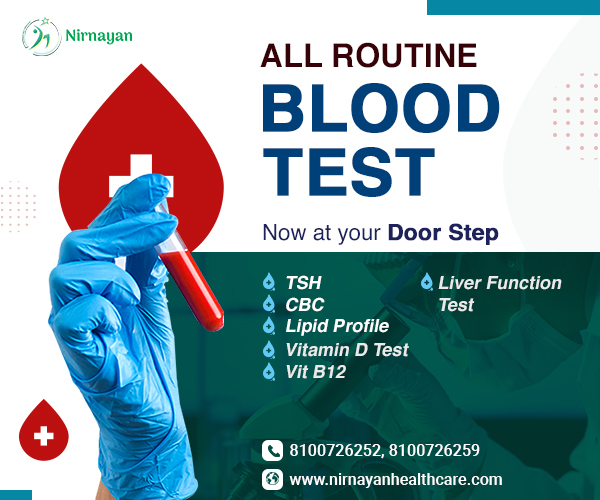What happens to you if you have been diagnosed with lymphoma? Do you know, your single ignorance can bring your life towards death? Yes, Lymphoma is a cancer type, and it attacks your lymphatic system, which causes decreased immunity. If any abnormal blood cells grow on your lymph nodes, it can be malignant. Thinking of the chances! Not at all, you just have to be concerned if you have any unwanted lymph nodes on your neck, groin, shoulder, chest, abdomen, armpit, or any other body parts and also symptoms of lymph node cancer.
Lymphoma doesn’t always announce itself with dramatic signs. In fact, many of the symptoms of Lymph node cancer are easily brushed off as common illnesses. It can often go unnoticed for months or even years. This is why staying on top of your health and getting regular checkups is essential.
What is Lymphoma?
Lymphoma is a blood cancer that affects your lymphatic system. Lymphocytes (White blood cells), responsible for your immune system, get damaged with this type of cancer. Your lymphatic system contains the spleen, thymus, tonsils, appendix, and a fluid called lymph. If any abnormal cell growth is noticed in a person’s neck, groin, or armpit (common parts of the lymph nodes), or almost any body part, the presence of lymphoma can be detected with several screenings or blood tests. Though the causes of Lymph node cancer have no significant points, DNA changes play a crucial role in developing Lymphoma.
How does lymph node cancer start in the body?
As lymph node cancer can spread throughout the whole body or other body parts, cancer cells start to break and travel through the lymphatic system or through the blood, and it may develop in your lymph node. This spread of cancer to different body parts is known as metastasis.
For cancer cells to spread, they undergo several transformations. They first need to detach from the primary tumour and attach to the walls of nearby blood or lymph vessels. From there, they pass through the vessel walls and travel via the bloodstream or lymphatic system to other organs or lymph nodes.
Types of Lymphoma:
Lymphoma is classified into two main types: Hodgkin Lymphoma & Non-Hodgkin Lymphoma (NHL), depending on the development of cancers, how it spreads, and responses to its treatment.
Hodgkin Lymphoma (HL): This type of lymphoma is identified with the presence of Reed-Sternberg cells, which are recognised as large, specific abnormal cells. It is named after Dr Thomas Hodgkin, and this Hodgkin lymphoma starts in a specific lymph node and spreads to the other lymph nodes. Symptoms of Hodgkin lymphoma include fever, unexplained weight loss, persistent fatigue, bleeding and low immunity.
While in early detection and treatment, it can be manageable, but you should consult with your medical professional about its treatment procedure without any delay.
Non-Hodgkin lymphoma: Non-Hodgkin lymphoma (NHL) is the most prevalent type of lymphoma, making up approximately 90% of all lymphoma diagnoses. NHL is further classified into two main categories: B-cell lymphomas and T-cell lymphomas. B-cell lymphomas are by far the most common, affecting around 80% of individuals with NHL.
Treatment for these types typically starts with chemotherapy, though patients may also undergo targeted treatments, immunotherapies, and in some cases, stem cell transplants or CAR T-cell therapy.
B-cell lymphomas include:
- Diffuse large B-cell lymphoma
- Follicular lymphoma
- Primary mediastinal B cell lymphoma
- Mantle cell lymphoma
- Post-transplant lymphoproliferative disorder
T-cell lymphomas include:
- Anaplastic large cell lymphoma
- Peripheral T cell lymphoma not otherwise specified
- Angioimmunoblastic lymphoma
- Hepatosplenic T-cell lymphoma
- Extranodal NK/T-cell lymphoma
Causes of Lymph Node Cancer:
While the exact causes of lymphoma remain not fully understood, many factors, along with genetics, play an essential role in developing lymphoma.
DNA changes: Lymphoma starts when any abnormal DNA changes may happen in the lymphocytes (white blood cells), and it does not stop, but rather grows uncontrollably. These DNA changes affect the responding signals of lymphocytes, and you need to immediately visit your doctor with the following symptoms.
Certain inherited genetic mutations or chromosomal abnormalities can predispose individuals to lymphoma. These mutations may disrupt normal immune cell function and contribute to lymphoma development.
Infections: Certain infections are linked to an increased risk of lymphoma. For example:
- Epstein-Barr Virus (EBV): This virus has been associated with several types of lymphoma, including Hodgkin lymphoma and certain non-Hodgkin lymphomas.
- Human Immunodeficiency Virus (HIV): People with HIV are more susceptible to developing lymphoma due to their weakened immune system.
- Helicobacter pylori: A bacterial infection that can increase the risk of lymphoma in the stomach.
Low immunity: People who have low immunity or a compromised immune system due to several health challenges, or organ transplants, are at higher risk of developing lymphoma. A weakened immune system always increases the risks of any diseases, whether it may be a common cough and cold, or any serious chronic disease.
What are the early signs of lymph node cancer?
Basically, the symptoms of lymph node cancer are not different from those of common illnesses. But if you have noticed any common symptoms that do not go away and bring some major changes in your body, it’s better to consult with your doctor. The early symptoms of lymphoma include,
- One or more painless lymph nodes in your neck area
- Constant fever does not go away, and the body temperature reaches 103 degrees Fahrenheit
- Extreme fatigue that stays for a long time
- Frequent night sweats
- Uncontrolled weight loss without any reason
- Skin rashes, itching
- Large tonsils
- Loss of appetite
Risk Factors for Lymphoma:
Risk factors for lymphoma may increase the chances of lymphoma, but it does not always mean that you have lymphoma.
Age: While age is just a crucial factor for developing lymphoma, it has justified implications.
Certain infections: If any person has already suffered from several infectious diseases, autoimmune diseases, or any viral complications, he/she may be at a higher risk.
Previous Cancer Treatments: People who have undergone chemotherapy or radiation therapy for other cancers may have an increased risk of developing lymphoma in the future.
Family History: A family history of lymphoma or other blood cancers, such as leukaemia, can increase the chances of developing lymphoma, suggesting a possible genetic predisposition.
Genetic disorders: Certain genetic disorders, like Wiskott-Aldrich syndrome, increase the likelihood of developing lymphoma.
Stages of Lymphoma:
While getting confirmed about the presence of lymphoma, further diagnosis is required to determine its stages.
Once a diagnosis of lymphoma cancer is made, the next step is to determine its stage:
The lymphoma stages are:
- Stage I: The lymphoma is limited to one lymph node region.
- Stage II: The lymphoma is present in two or more lymph node regions on the same side of the diaphragm.
- Stage III: Lymphoma is found in lymph node regions on both sides of the diaphragm, meaning both above and below (neck and abdomen).
- Stage IV: This is the most advanced stage when Lymphoma has spread beyond the lymphatic system to one or more organs.
How to diagnose Lymphoma & its stages:
As lymphoma is crucial to diagnose it accurately because lymphoma is a blood cancer, accurate diagnosis is crucial because it requires early detection to confirm its severity for controlling its spread and reducing its impact. Not only can one test confirm, but you also need to do various screenings, blood tests, and other biopsies to ensure its implications.
Common treatment of lymphoma:
After diagnosing lymph node cancer, the doctor suggests some treatment phases which a patient should go through. Here are some common treatments, including:
Chemotherapy: This therapy is recommended for killing the cancer cells by using drugs.
Immunotherapy: Through this therapy, a patient’s immune system is stimulated to fight cancer.
Radiation therapy: Some radiation may be used to kill the cancer cells.
Stem cell transplant: This is the latest technique in which cancer-affected bone marrow may be replaced with healthy stem cells.
Can blood tests detect lymph node cancer?
Blood tests for lymphoma are essential to confirm the presence of cancer cells in the blood.
Complete Blood Count (CBC) is used to check the white blood cell counts.
Erythrocyte sedimentation rate (ESR) can be recommended for detecting any inflammation.
The Lactate Dehydrogenase (LDH) test may be suggested for checking the rate of cell growth.
In some cases, Serum protein electrophoresis (SPEP) helps to assess and identify abnormalities in the protein composition of the serum.
Contacting the best laboratory chain across Kolkata at Nirnayan Healthcare for accurate and precise diagnosis of cancer screening with the latest and advanced technologies.
Along with these blood tests, a PET Scan, CT Scan, MRI, and X-Rays are also required for getting a clear picture of the location, the stages, and how it spreads in your body.
Complications & diseases related to Lymphoma:
So many complications and other related diseases may occur after a thorough treatment of lymphoma.
Infections & diseases:
Lymphoma can weaken your immunity, and for that reason, you get into several infections like diarrhoea, fever, body pain, or headache. Chemotherapy and radiation therapy affect your heart with other complications, and that leads to heart attack, heart failure, and other diseases. After these therapies, your lung health is affected, and several respiratory infections also arise.
Fatigue & weakness:
After getting through a course of chemotherapy and radiation therapies, fatigue and weakness are the most common side effects, often lasting weeks or even months after treatment.
Brain disorders:
Some people experience memory problems, difficulty concentrating, or slower thinking after chemotherapy.
Digestive disorders:
Chemotherapy can damage your normal digestive tract, and it may cause nausea, diarrhoea, and digestive issues, so doctors may ask you to follow a restricted diet after treatment.
How to Prevent Lymphoma:
While there is no accurate way to prevent lymphoma, some restrictions you can follow to reduce its risks and complications.
- Practice a balanced diet as suggested by your medical professionals and opt for a diet plan that suits you as per your health condition.
- Maintain your body weight as being overweight can increase the risks of developing any disease.
- Do regular exercises, and be active with daily activities.
- Stopping smoking and quitting alcohol can boost your immune system.
- Regular health checkups and doctor visits are mandatory for daily follow-up of your health.
- Avoid any chemical exposures and radiation that are related to increasing the risk of developing lymph node cancer.
- Follow good hygiene and take vaccinations as recommended by your medical professionals to combat other viral diseases like Hepatitis C virus, thalassemia, and other diseases.
Is pain in the lymph nodes a sign of cancer?
Do you have any painful lymph nodes? Fear not, painful lymph nodes do not have a higher chance of cancer; it’s a rare condition. Mostly, anyone who has painless lymph nodes that grow slowly may have a higher risk of cancer. Swollen lymph nodes may occur with such infections or due to some conditions that do not contribute to cancer.
A summary from Nirnayan Healthcare:
As lymphoma is a life-threatening blood cancer, sometimes be difficult to detect at an early stage. Understanding its symptoms and not avoiding it if you have any painless growing lymph nodes in your body, consult with your nearest doctor and do whatever he/ she suggest. Nirnayan Healthcare is available 24*7 with advanced cancer screening tests and biopsies. Early detection and timely treatment make all the difference in curing or controlling cancer.




